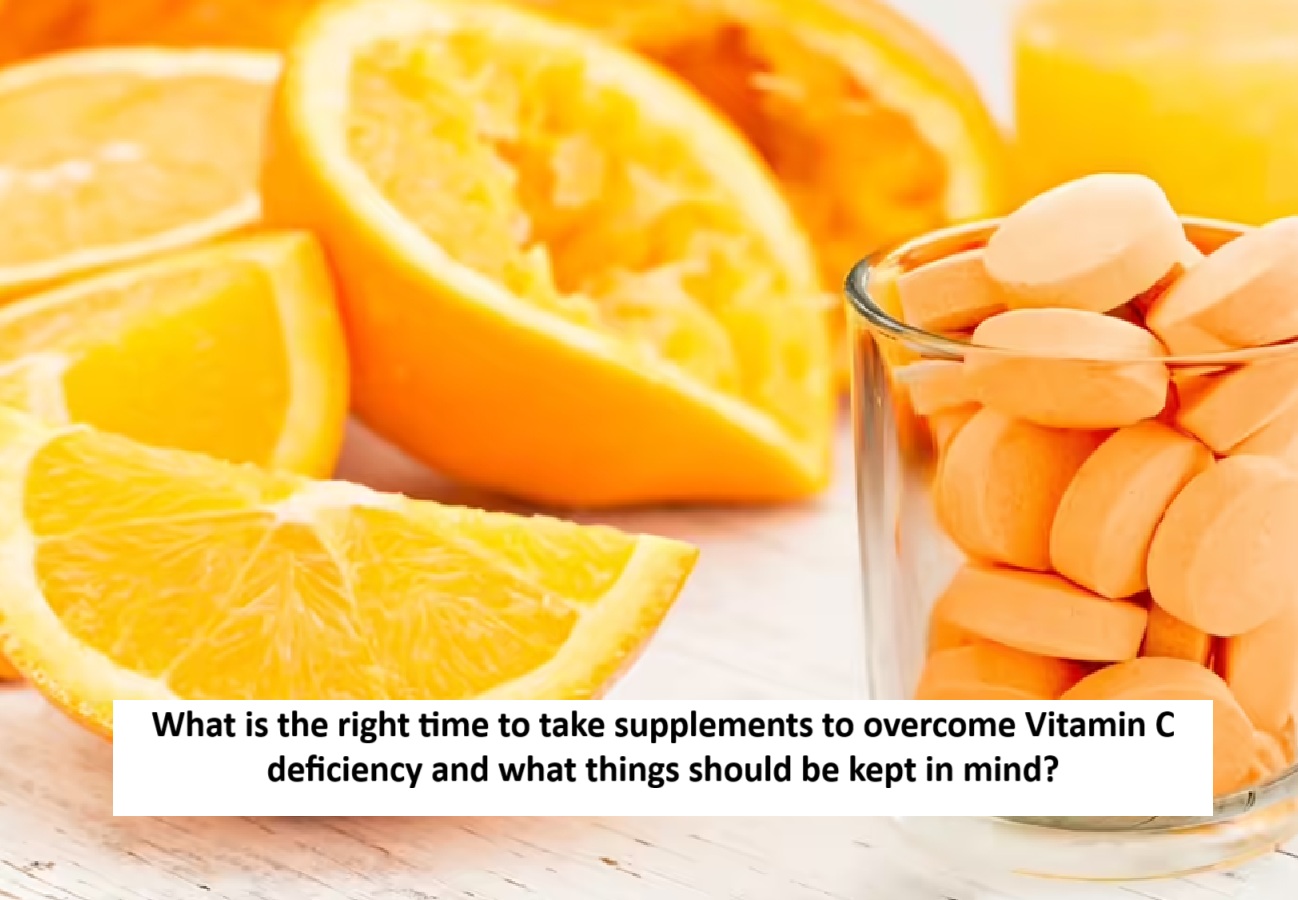
News Topical, Digital Desk : Vitamin C is vital for the body, but our bodies can neither produce nor store it. Vitamin C is a water-soluble vitamin, meaning it dissolves in water and is excreted through urine (Vitamin C Deficiency).
Therefore, if vitamin C is not included in the diet, it can lead to a deficiency. Many people take supplements to overcome this deficiency. If you also take vitamin C tablets, you should know the right time to take them (Right Time to Take Vitamin C Supplements) and some important things to get better results. Let's learn about this.
What is the best time to take Vitamin C?
Vitamin C is a water-soluble vitamin, which means it doesn't remain in the body for long and is excreted through urine. To improve its absorption, keep these things in mind:
- After breakfast in the morning - The best time to take vitamin C supplements is after breakfast. Taking them with food reduces the risk of stomach acidity or gastric problems. Vitamin C is absorbed in the small intestine, so taking it with food may be beneficial.
- Splitting your daily intake: Because the body can't store large amounts of vitamin C at once, if you need to take a large dose (such as 1000mg), it may be more beneficial to split it into two doses. For example, take 500mg after breakfast and 500mg after lunch. This ensures a consistent supply of vitamin C and improves absorption.
- Avoid taking on an empty stomach - Vitamin C contains ascorbic acid, which is acidic. Taking it on an empty stomach can cause heartburn, acidity, or indigestion . Therefore, always take it after eating something.
What things should be kept in mind?
- Keep an eye on the dosage – Excessive dosage of Vitamin C can cause diarrhea, nausea, stomach cramps and gastric problems.
- Caution in certain medical conditions: People with kidney problems or a history of kidney stone formation should consult a doctor before taking high doses of vitamin C, as it may increase the risk of oxalate stone formation .
- Drug Interactions - Vitamin C may interact with certain medications, such as blood thinners, estrogen-containing medications , and some types of chemotherapy. If you're taking any regular medications, consult your doctor before starting a supplement.
--Advertisement--

 Share
Share


